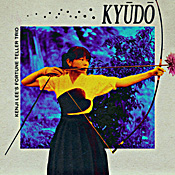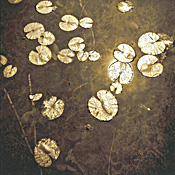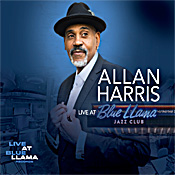Recent Recordings by Area Jazz Artists
The three CDs discussed here, while quite different in many aspects, are a testament to the rich variety of music being played in our area, with new players constantly coming into view, mixing with established local artists, the presence of visitors, and the mix of genres and approaches that keeps the scene vital.

Last year Kenji Lee’s Fortune Teller Trio released Kyūdō (Bandcamp), featuring Kenji Lee (tenor saxophone, Hammond organ), Andy Peck (acoustic and electric bass), and Jonathan Barahal Taylor (percussion), with vocalist Estar Cohen on three tracks.
Nine compositions were written by the leader, with two by Peck, one by Ornette Coleman, one based on a movement from Gustav Mahler’s 9th symphony, and a final piece by Joanna Sternberg. Beautifully paced, with a rich variety of tempos and moods and the compositions, the album is arranged so as to create an integrated recital rather than just a collection of tunes.
This is not a saxophone-plus-rhythm-section trio: all participants work on an equal footing, and because all three utilize a wide variety of technical instrumental expressive forms, the tonal palate is wide indeed. On “Budō,” there is no sax at all; some tunes swing in a relatively traditional manner, while on others rhythm is broken down and the three musicians focus on creating spiritually forceful soundscapes using extended techniques. The virtuosity and rich artistic imagination of both Peck and Taylor are on full display here, handsomely recorded. There is no dearth of young tenor saxophone players around, but Lee stands out as an original voice whose burnished tonal majesty and melodic inventiveness are all of his own, even if informed by past masters. Listening to his ballad playing you would think you are listening to someone who has been at this for years! The addition of Cohen is perfect as her striking wordless inventions on three tunes are just stunning and fully integrated into the band. One of these is the penultimate “N.O.”, which is followed by a pensive rendering of by Joanna Sternberg’s “You Have Something Special,” a delicate sad song about the psychological toll of bullying, but here presented as a pure instrumental, wisely inviting the listener to imagine or seek out the singer/songwriter’s original version.

Almost half a century ago bassist Mike Johnson and vibraphone player Mike Gilmore created the Northwoods Improvisers, soon joined by drummer Nick Ashton. Over the years, the group has gone through different iterations, exploring American improvised music in a universal configuration, reaching out to encompass melodies, scales, and rhythms from other continents, securely grounded in the foundations set by Johnson and Ashton. Recent changes were brought about by the passing of the great saxophonist and composer Farouk Z Bey and by Gilmore’s departure, shifting both the repertoire and the tonal palate characterized by the prominent use of the vibraphone.
The latest version of the band is now heard on Fanfares (Entropy Stereo ESR022) featuring Dominic Bierenga (tenor, soprano, alto saxophones, percussion), Donovan Boxey (alto, soprano saxophones, melodica, percussion), Jack O’Brien (cello, bass, percussion), Mike Johnston (bass, wood flutes, percussion), and Nick Ashton (drums, log drum, percussion), joined on three tunes by violinist Mike Khoury.
With the exception of the short opening “Luna Turca” by Don Cherry and Bey’s “Fanfare for A.J.” the compositions are by Northwoods members. The latter is a swinging up-tempo boppish romp that provides a good example of the evolution of the band, as the other tracks are all quite different in structure and feeling, sparser, more laid-back groove oriented, with soprano saxes, native flute, and percussion setting the tone. The fanfares seem more like hymns, some with Native American and Middle Eastern overtones. Improvisations blend with the written elements exploring the modes and feel of a tune rather than blowing unrelated notes based on a harmonic structure. The new band uses disciplined sectional playing with a front line of two extremely impressive young saxophone players, to which is now added a string section of cello and violin, all working together with exceptional collective intuition. There is joy and sadness here, best summarized by Johnson’s finale “In Fields,” “inspired by early 60’s Cecil Taylor and in memory of Lukas Lindermayer and Ernie Hoover,” which alternates between written dirge passages and wild expressive solo passages, fading out into silence.

In January singer Allan Harris returned to the Blue LLama club in Ann Arbor with his regular young working band consisting of Irwin Hall (alto sax, flute), Arcoiris Sandoval (piano, keys, musical direction), Marty Kenney (bass) and Norman Edwards (drums). The music was recorded on the club’s wonderful sound system and a selection of tunes has now been released as Live at Blue LLama Jazz Club (Live at Blue LLama Records).
The repertoire presented here is a mixture of standards, jazz tunes, and compositions by the leader, with some imaginative arrangements by musical director Sandoval. Harris is not just a singer, but a full-fledged performer steeped in older cabaret traditions who knows how to create an atmosphere and create a paced set that is more than just a series of songs. He is a true jazz singer; with the rhythmic suppleness and harmonic insight one usually associates with instrumentalists. He shapes his flexibly expressive baritone sounds in accordance with the lyrics, from velvety to raspy, with many shades in between, and his stage persona commands attention.
Although clearly garnered from more than one performance, the choice and order of tunes on the recording seems like a single set and provides a perfect example of how he works a room. The familiar “Sunny” rendered with welcoming gusto opens the recital, followed by a more pensive Jennine, with a nice solo by Hall on alto, picking the tempo up just a bit for the singer’s own atmospheric happy New Day, opening with Hall again, and then it is ballad time. Ray Noble’s 1941 “The Very Thought of You” started life as a foxtrot but has been regularly done very slowly by Frank Sinatra, Nat King Cole, and many others, but Harris takes it up a notch, closer to the original, with a pronounced backbeat, giving it a more contemporary vibe, even if you can hear him tipping his hat to predecessors such as Cole or Johnny Hartman. The set continues with jazz classics such as “So What,” complete with the requisite Miles Davis solo with Hall and Sandoval really digging in on their solos, with much more fire than the original, and Chick Corea’s “Spain,” with the composer’s lyrics. Before signing off with two more originals, Harris picks up his guitar for an old-fashioned blues, bringing the house down!
A perfect release for the club’s label, as anyone hearing him here for the first time will run to hear him the next time he is in town.